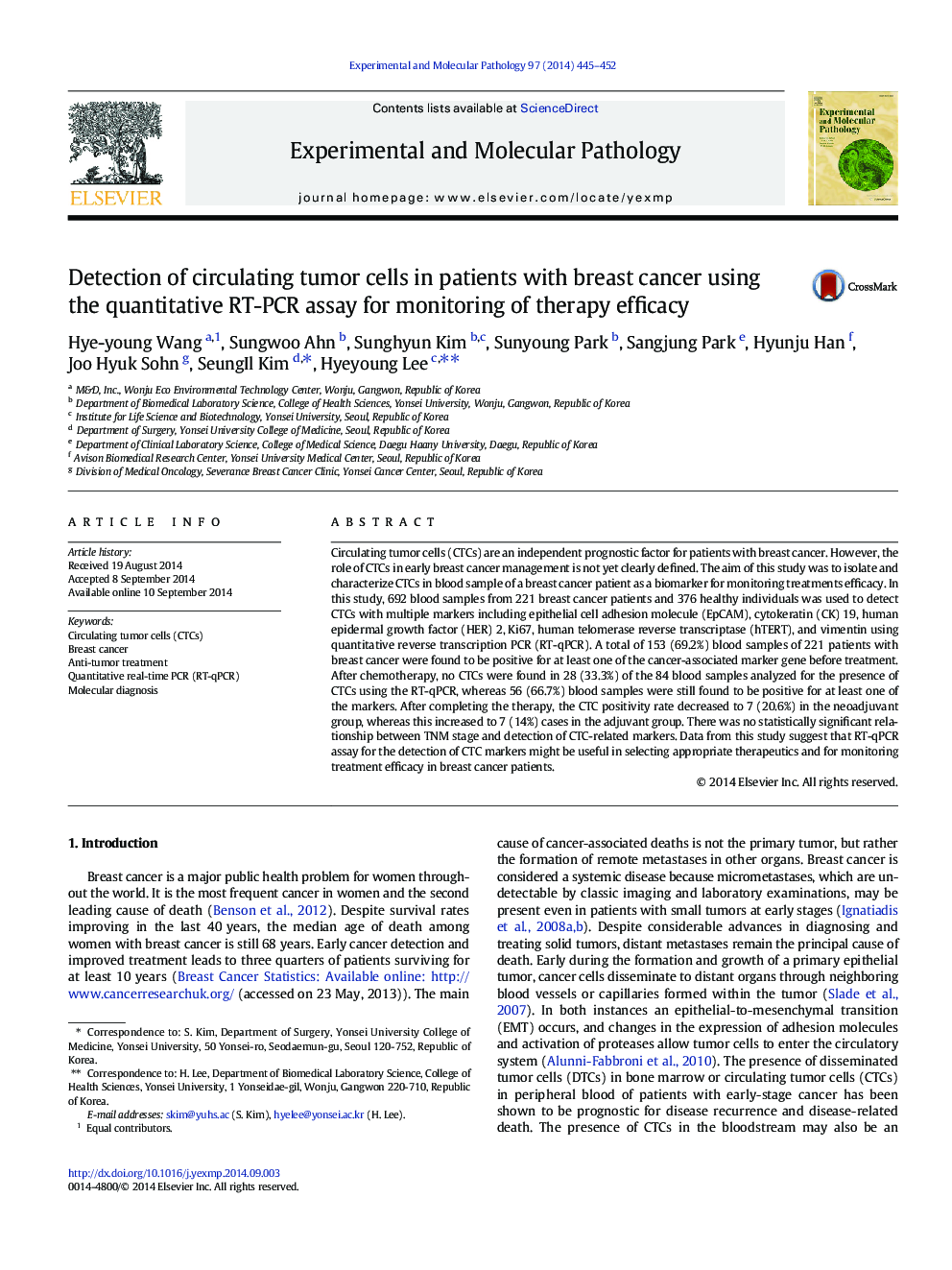| Article ID | Journal | Published Year | Pages | File Type |
|---|---|---|---|---|
| 5888098 | Experimental and Molecular Pathology | 2014 | 8 Pages |
Circulating tumor cells (CTCs) are an independent prognostic factor for patients with breast cancer. However, the role of CTCs in early breast cancer management is not yet clearly defined. The aim of this study was to isolate and characterize CTCs in blood sample of a breast cancer patient as a biomarker for monitoring treatments efficacy. In this study, 692 blood samples from 221 breast cancer patients and 376 healthy individuals was used to detect CTCs with multiple markers including epithelial cell adhesion molecule (EpCAM), cytokeratin (CK) 19, human epidermal growth factor (HER) 2, Ki67, human telomerase reverse transcriptase (hTERT), and vimentin using quantitative reverse transcription PCR (RT-qPCR). A total of 153 (69.2%) blood samples of 221 Â patients with breast cancer were found to be positive for at least one of the cancer-associated marker gene before treatment. After chemotherapy, no CTCs were found in 28 (33.3%) of the 84 blood samples analyzed for the presence of CTCs using the RT-qPCR, whereas 56 (66.7%) blood samples were still found to be positive for at least one of the markers. After completing the therapy, the CTC positivity rate decreased to 7 (20.6%) in the neoadjuvant group, whereas this increased to 7 (14%) cases in the adjuvant group. There was no statistically significant relationship between TNM stage and detection of CTC-related markers. Data from this study suggest that RT-qPCR assay for the detection of CTC markers might be useful in selecting appropriate therapeutics and for monitoring treatment efficacy in breast cancer patients.
